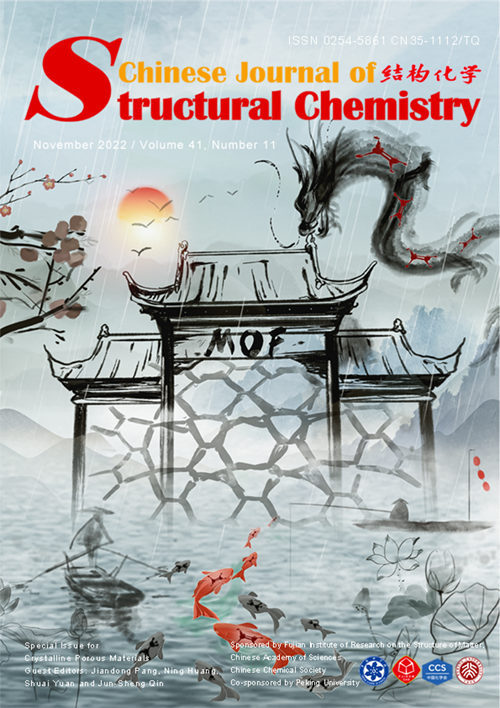
Cover Picture
Recent Advances in C2 Gases Separation and Purification by Metal-Organic
Frameworks
Zhengyi Di, Xinjing Zheng, Yu Qi, Heng Yuan and Cheng-Peng Li*
Submit a ManuscriptLithium Ion Conduction in Covalent Organic Frameworks
Sijia Liu, Minghao Liu, Qing Xu* and Gaofeng Zeng*
Chin. J. Struct. Chem. 2022, 41, 2211003-2211017 DOI: 10.14102/j.cnki.0254-5861.2022-0114
October 31, 2022
covalent organic frameworks, ionic conduction, lithium ion conduction, pore surface engineering, ionic COFs
ABSTRACT
Ion
conduction plays key roles in electrochemical systems, including fuel cells,
lithium ion batteries, and metal-air batteries. Covalent organic frameworks
(COFs), as a new class of porous polymers, constructed by pre-designable
building blocks, are ideal hosts to accommodate ionic carries for conduction,
because of their straightforward pore channels, tunable pore size, controllable
pore environment, and good chemical and thermal stability. Different from proton
conduction, how to achieve high lithium ion conduction is still a challenge as it is difficult to dissociate ionic bonds of the lithium salts. To facilitate dissociation of
lithium salts, COFs with different pores and skeletons are well designed and
constructed. This review focused on emerging developments of lithium ion
conduction in COFs, and discussed
the structures of these COFs, and conductive performance to elucidate the
structure-property correlations.
Furthermore, we have concluded the remaining challenge and future direction in
these COF-based lithium conductive areas. This review provides deeper insight
into COFs for ionic conduction.







